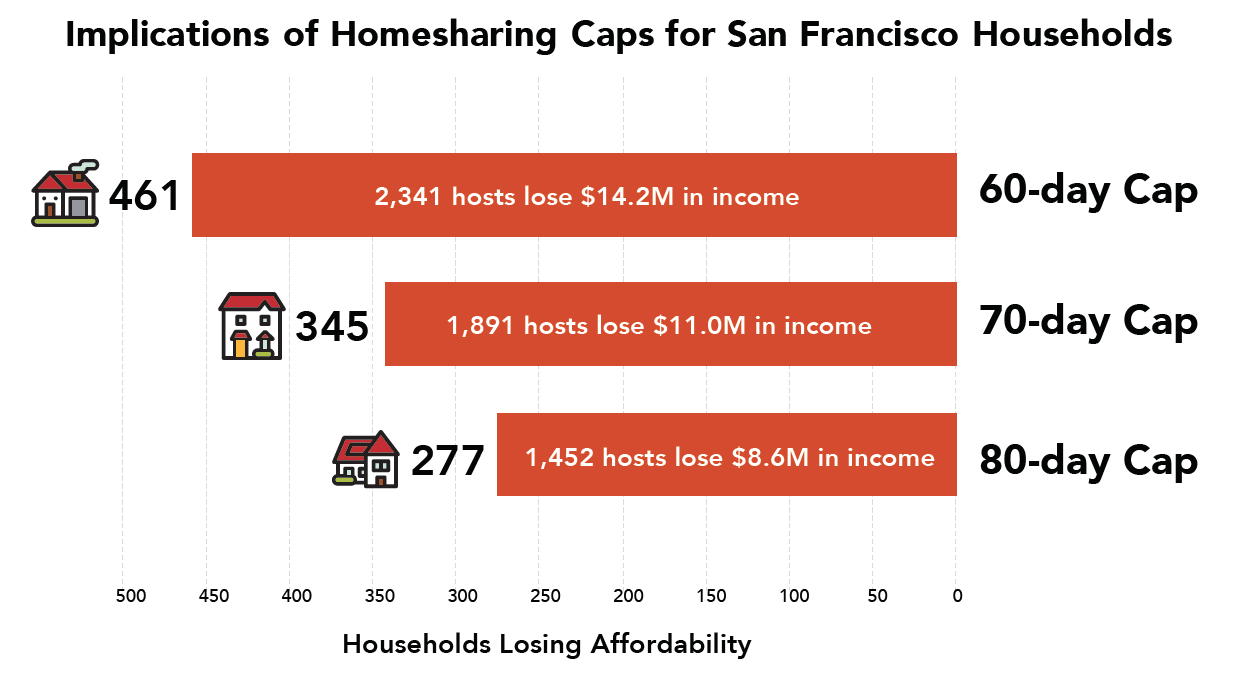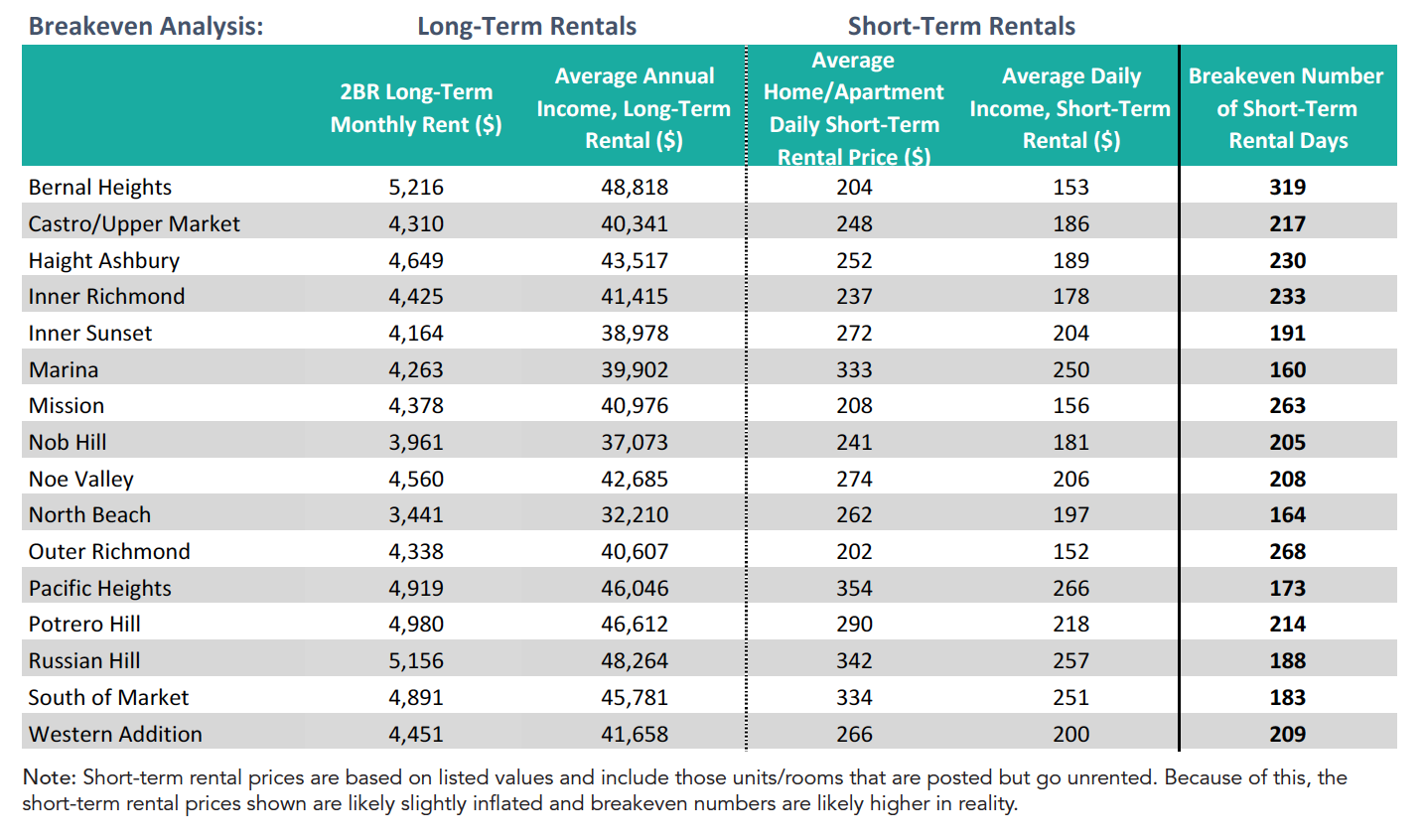Homesharing in San Francisco
Housing affordability issues in San Francisco have come to a head in the last few years as average rental prices have grown from $2,200 per month in 2010 to over $3,600 per month at the end of 2017. With wages growing at a slower pace, higher rents have pushed some families to relocate while other households are kept from accessing the San Francisco housing market.
Coincidentally, the practice of homesharing via short-term rentals on platforms such as Airbnb, VRBO, and HomeAway has grown significantly in San Francisco over this same time. This overlap has made homesharing a divisive issue. Its proponents say the ability to generate revenue by sharing their home allows them to continue living in San Francisco affordably. Detractors say permanent vacation rentals are taking housing units off of the traditional market, raising home and rental prices, and changing the character of their neighborhoods.
This division has also made homesharing an ongoing topic for policymakers, with city hall debating numerous policy measures and voters weighing in at the ballot box. Most recently, Airbnb and HomeAway agreed to put in place a system that ensures all hosts are registered with the city’s Office of Short-Term Rentals (“OSTR”). Requiring all hosts on the platform to register (with limited exceptions), in combination with a primary residency requirement, will effectively eliminate hosts that rent their entire unit on the short-term market for more than 90 days per year and provide the city with the data necessary to implement a real enforcement mechanism for the first time.

In creating a registration system with strict qualification guidelines, San Francisco policymakers have ensured that homesharing has no impact on the traditional rental market. The policies enacted solve for the unique issue that local policymakers were trying to address, but they
may not be applicable to other cities that face their own set of economic circumstances related to the growth of the short-term rental market.
